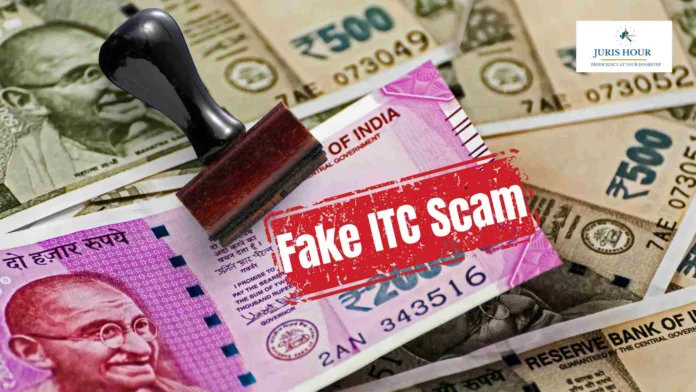Q1 FY26 Sees 29% Surge in Fake ITC Despite Fewer Fake Firms
In a sweeping crackdown on fraudulent tax practices, Goods and Services Tax (GST) authorities across the country have unearthed a staggering Rs. 61,545 crore worth of fake input tax credit (ITC) passed through 25,009 bogus firms during the financial year 2024-25, official data revealed.
The first quarter of the current fiscal (FY26) alone witnessed the detection of fraudulent ITC claims totaling Rs. 15,851 crore, a sharp 29% increase from Rs. 12,304 crore uncovered in the same period last year. Despite the rise in value, the number of fake firms detected dropped slightly to 3,558 in Q1 FY26, compared to 3,840 in Q1 FY25 — an outcome attributed to the government’s intensified verification protocols and targeted enforcement campaigns.
“Approximately 1,200 fake entities are being identified each month. The marginal dip in Q1 detections compared to last year suggests that recent efforts to weed out fake GST registrations are bearing fruit,” a senior official noted.
Authorities also reported significant enforcement actions: 53 individuals were arrested and ₹659 crore was recovered in Q1 FY26, up from 26 arrests and ₹549 crore recovery in the corresponding period of FY25.
Nationwide Anti-Fraud Drives Yield Results
GST officers launched two major nationwide enforcement drives to dismantle networks of fake GST registrations. The first, conducted between May 16 and July 15, 2023, exposed 21,791 non-existent firms, with suspected tax evasion pegged at ₹24,010 crore. The second operation, spanning April 16 to October 30, 2024, led to the detection of approximately 18,000 shell companies involved in evasion of ₹25,000 crore.
In response, the GST registration process has undergone significant tightening. Applicants flagged as high-risk — based on data analytics — must undergo physical verification and Aadhaar authentication. Only low-risk businesses are granted registration within seven days.
States Step Up Monitoring
A high-level panel of state finance ministers, chaired by Goa Chief Minister Pramod Sawant, is actively evaluating tax evasion in key sectors. The group is expected to recommend further measures to prevent ITC misuse and plug regulatory loopholes.
ITC, a core feature of the GST regime, allows businesses to claim credit for taxes paid on inputs at the time of paying final output tax. However, unscrupulous actors have been exploiting this system by creating fictitious firms to fraudulently avail and pass on ITC, defrauding the exchequer.
Legal Tools for Enforcement
The GST Act empowers authorities to take stringent action against such fraud. This includes arrest, suspension or cancellation of registrations, blocking of electronic credit ledgers, and provisional attachment of assets and bank accounts to ensure recovery of dues.
As the fight against tax evasion continues, officials emphasize that leveraging technology and improving inter-agency coordination will be key in curbing the menace of fake ITC claims and protecting government revenue.

